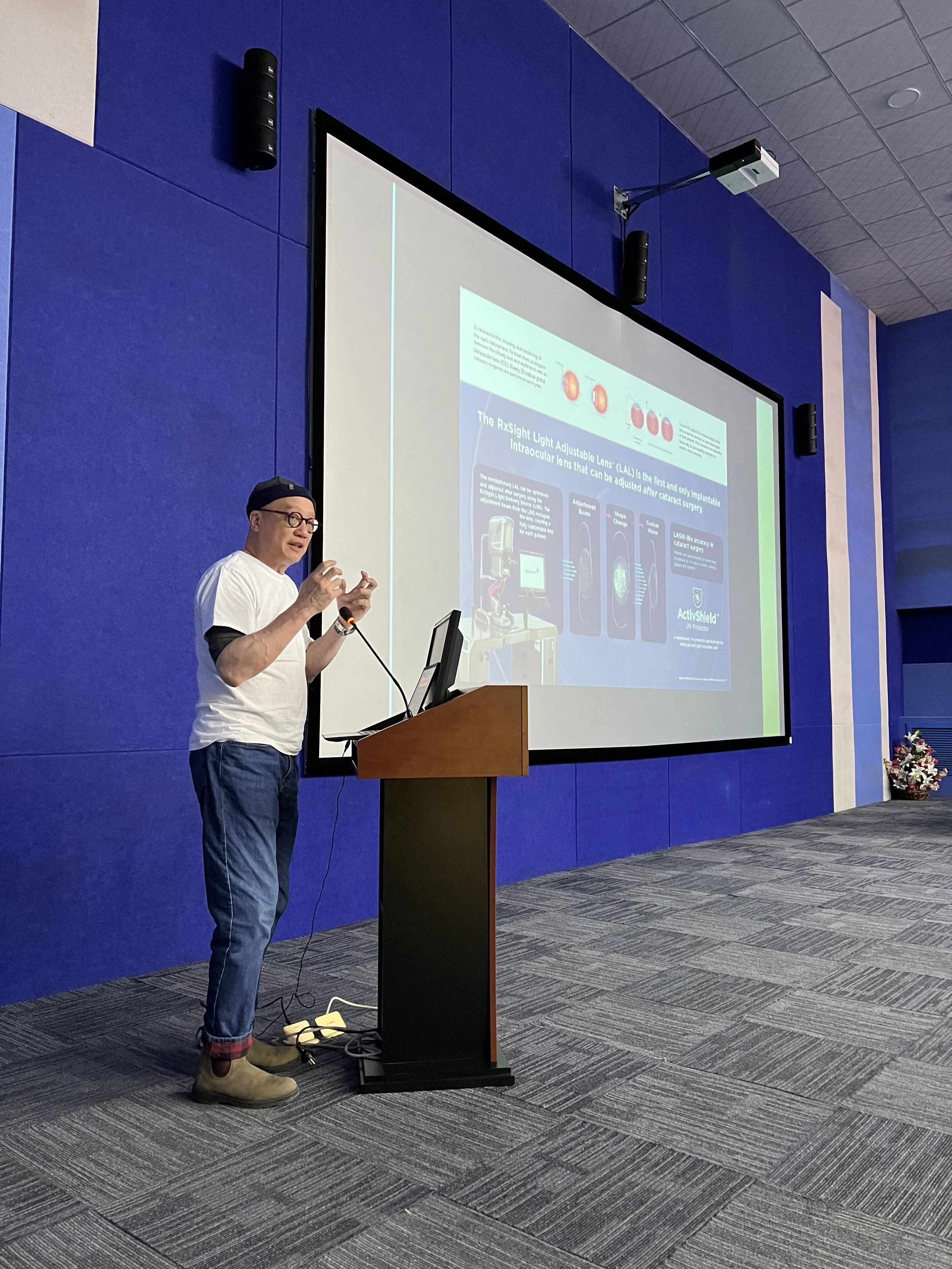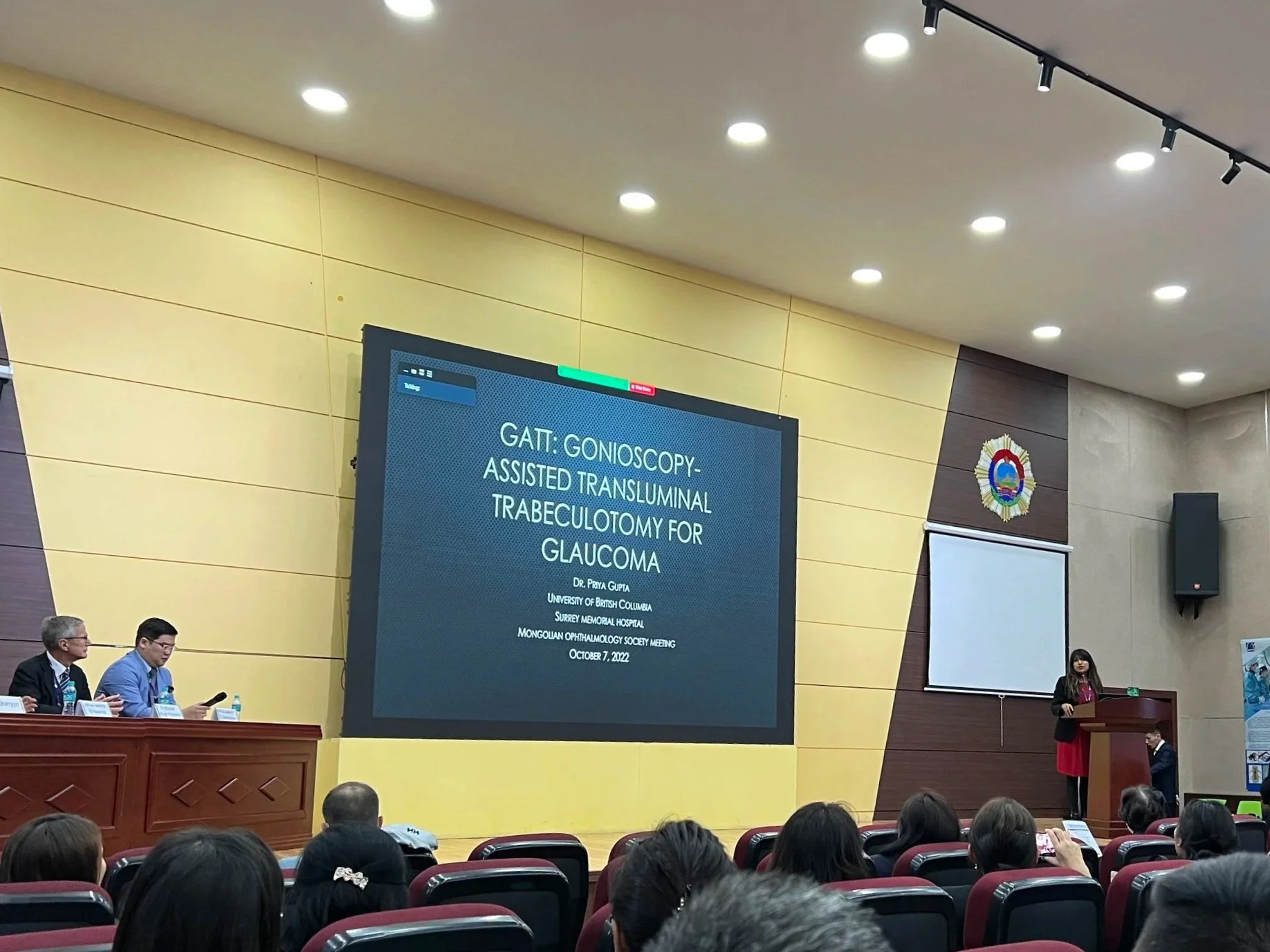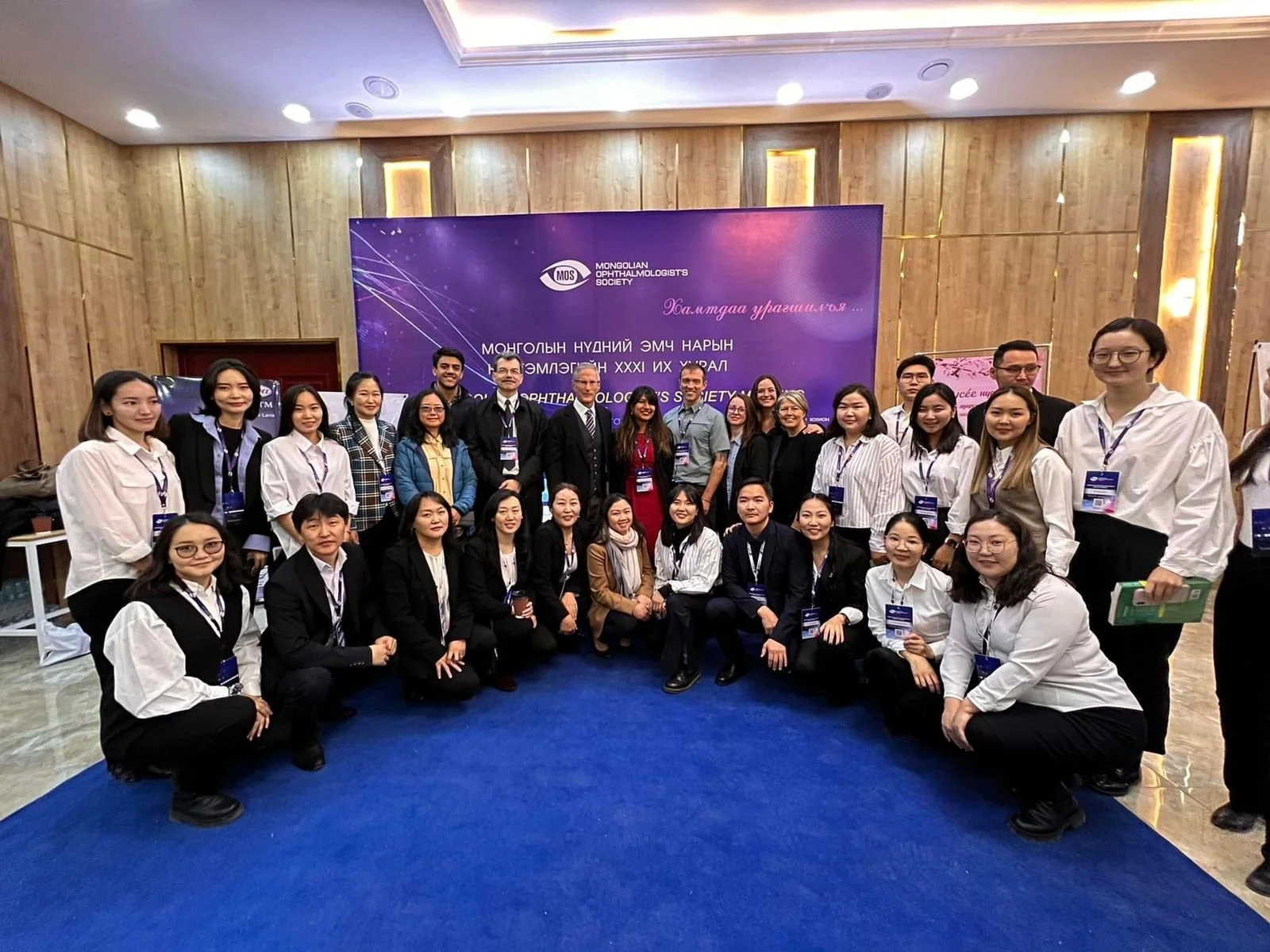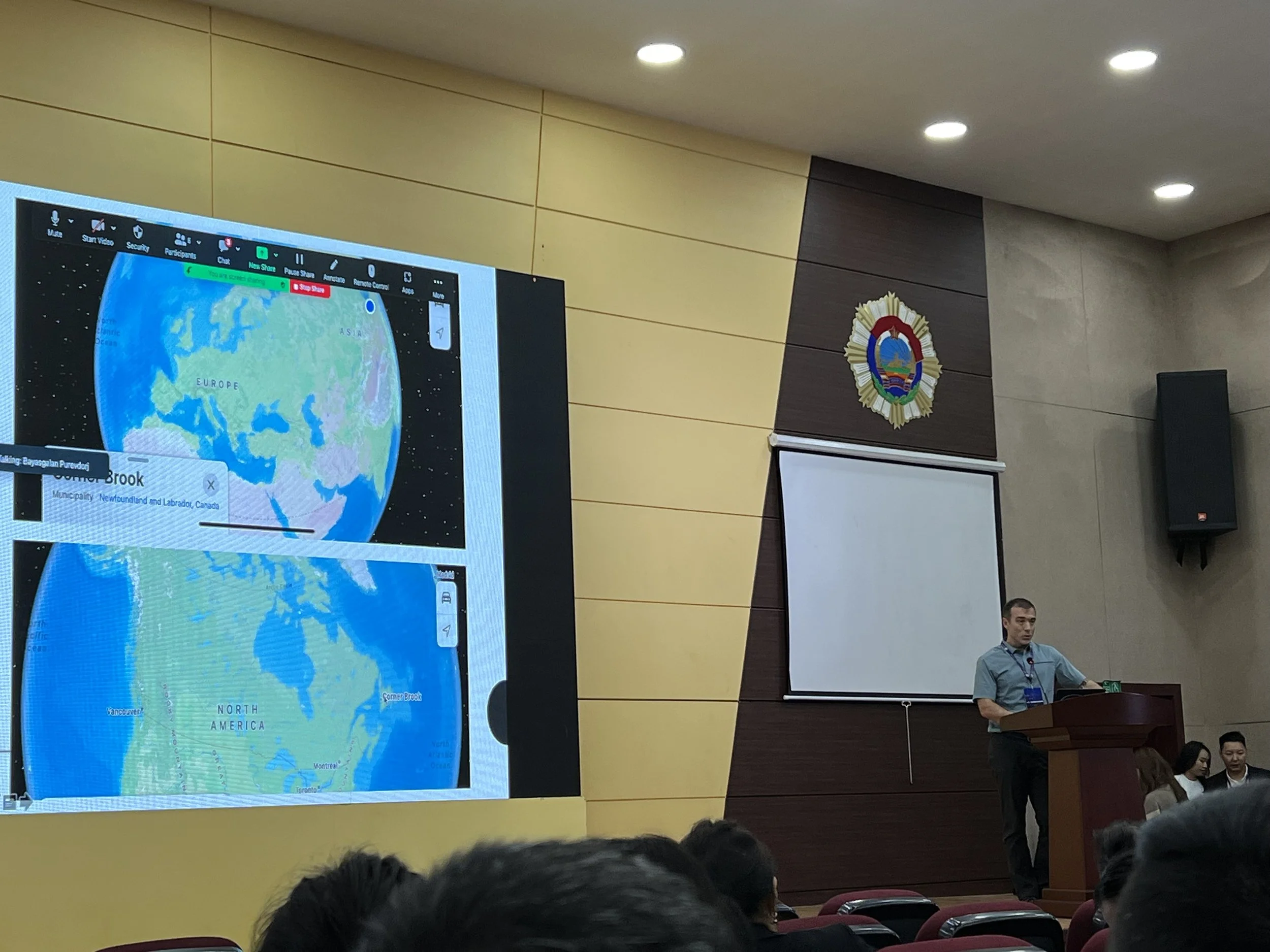Building the Future of Eye Care: LSF’s Commitment to Teaching in Mongolia
Sharing knowledge beyond the operating room
At Laurel Surgical Foundation (LSF), our mission is not only to restore sight through direct patient care but also to ensure that the knowledge, skills, and capacity to deliver high-quality ophthalmology care remain in Mongolia long after our missions end. One of the most impactful ways we achieve this is through teaching, both didactic and surgical.
Our teams provide open lectures for all Mongolian ophthalmologists, creating opportunities for doctors across the country to learn together. These sessions are offered during our missions and through presentations at national ophthalmology meetings, ensuring that every physician has access to the most current techniques, research, and practical approaches to patient care.
The importance of teaching: didactic and surgical
Didactic teaching builds the foundation. Through lectures, case discussions, and interactive sessions, we share knowledge about topics ranging from cataract surgery complications to the management of diabetic eye disease. These lectures are designed to be accessible, relevant, and directly applicable to the daily challenges Mongolian ophthalmologists face in their clinics and hospitals.
Surgical teaching is where theory meets practice. In the operating room, our visiting surgeons work side by side with Mongolian residents and faculty, guiding them step by step through patient screening, surgical preparation, incision techniques, lens implantation, and post-operative care. Rather than performing surgeries alone, our goal is to transfer skills and confidence so that local ophthalmologists can continue to serve their patients independently.
Presenting at Mongolian ophthalmology meetings
LSF is honored to participate in national meetings organized by the Mongolian Ophthalmology Society. These gatherings provide a vital platform for collaboration, knowledge exchange, and professional growth. By presenting at these meetings, LSF contributes not only international expertise but also reinforces the importance of continuous education within the Mongolian medical community.
For young residents and seasoned ophthalmologists alike, these sessions create a bridge between global best practices and Mongolia’s unique clinical needs.
Long-term impact: sustainable change
The true measure of LSF’s work is not only in the number of surgeries completed during missions but also in the lasting change in ophthalmology education and practice. Over time, our teaching has:
Expanded surgical capacity by equipping residents and faculty with hands-on skills.
Improved patient outcomes through the adoption of modern surgical and diagnostic techniques.
Built confidence among residents and facutly, giving them the opportunity to perform procedures under mentorship.
Strengthened collaboration between international and local ophthalmologists, creating professional networks that will support Mongolia’s eye care system for years to come.
Looking ahead
Every lecture delivered and every surgery taught is an investment in Mongolia’s future. The impact multiplies when a resident we trained teaches their own students or when a surgeon applies new knowledge to save a patient’s sight. This ripple effect is how sustainable change is made.
At LSF, we believe that teaching is as important as surgery itself. By sharing knowledge openly, mentoring with patience, and presenting at national forums, we are helping to shape the next generation of Mongolian ophthalmologists, ensuring that sight-saving care continues to grow and flourish across the country.



